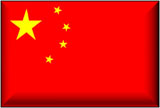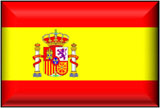Ihr Partner zum Investieren in China : China investieren, Business in China, Beratung über China, in China investieren, Internationalisierung KMB in China
EU strengthens relations with China
June, 2011U.S. Pew Environment Group has recently released a report on investments in clean energy in 2010. According to the survey carried out in the document, China was the country that had the highest investments in the sector during 2010, surpassing Germany and the United States, respectively the third and second place.
The Chinese national broadcaster China Central Television (CCTV) spread the news of a strengthening of bilateral relations between China and the European Union. All members of the European Union in Beijing were invited to participate in an event dedicated to celebrating the relationship between the two economies, even in terms of cultural exchanges. In particular, attention is given to young, future leaders. Taking part in the opening ceremony of the 2011 EU-China Year of Youth in Beijing, the head of the Delegation to China, Markus Ederer, emphasized the importance of the relationship between the EU and China, announcing also that the two sides are planning a series of activities this year to strengthen exchanges. The initiative to establish a 2011 EU-China Year of Youth was decided by Chinese Premier Wen Jiabao and European Commision President Barroso together at the EU-China Summit in 2009. This is the first time the EU is holding a joint Year of Youth with any partner. Ederer said that “In 35 years, Europe and China have developed a Strategic Partnership. This is a partnership which is crucial not only for the wellbeing of Chinese and European citizens, but for the whole world. We have a common responsibility to manage our world” .
“In 35 years, Europe and China have developed a Strategic Partnership. This is a partnership which is crucial not only for the wellbeing of Chinese and European citizens, but for the whole world. We have a common responsibility to manage our world”
Ederer spoke about EU-China future joint activities, focused on areas such as voluntary activities, active involvement in society and youth work, healthy lifestyles, creativity and international vision, employment and entrepreneurship. These initiatives should foster a better understanding of each other, with the auspices of overcoming barriers due to cultural differences among the two giants. All of programs involved aim at strengthening understanding and supporting the development of bilateral exchanges. The focus is on young people because they are the engines of all the world societies. This innovative mode of cooperation is particularly significant because it allows to form a uniform, with the same paradigms, workforce and leading class for the future. The full speech of Markus Ederer is available at http://www.2011euchinayouth.eu/.
Dienstleistungen
Unser breiter Network ermöglicht ein ausführliches Angebot an Beratungsdienstleistungen zur Investition in China. Wir helfen bei der Internationalization vom SME in China:
Die Gesellschaft
Unsere Beratungsgesellschaft unterstützt völlig in allen Schritten den Kunden, der in China investieren will. Dank unsereR professionellen Mitarbeitern und des breiten strukturierten chinesischen Network – “Guanxi” genannt – ist das alles möglich. Das erlaubt den Betrieben ( speziell das SME ), das Risiko und die Probleme zu unterbreiten, die bei einer Investition in China möglich sind.





